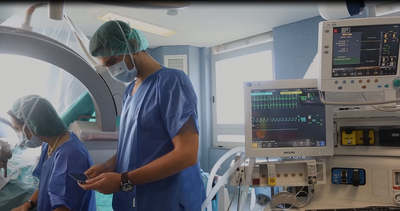INESC TEC in nursing care project
INESC TEC’s Centre for Industrial Engineering and Management (CEGI) is involved in a COST-Action project entitled “Rationing - MISSED CARE: An international and multidimensional problem”, where the goal is to promote discussion about the rationing of nursing care. The project was launched on September 20 in Brussels.
27th November 2016
There is increasing evidence that the prevalence of rationing of nursing care is high in acute care hospitals internationally and is consistently associated with negative patient, nurse and organisational outcomes. The Rationing of Care (RANCARE) Action aims to facilitate discussion about rationing of nursing care based on a cross-national comparative approach with implications for practice and professional development. This will be achieved by advancing collaboration, networking, and exchange of expertise and knowledge both at European and international level, and by integrating different disciplines and approaches including nursing, ethics, health care studies in general, economics and social policy.
The activities of the Action will be run via four working groups and two horizontal committees that will oversee the various activities planned during the four-year lifetime of the project. Each working group will focus on a different area: conceptualisation, organisational and methodological issues (working group 1); evidence-based interventions and designs (working group 2); ethical dimensions of rationing of nurse care (working group 3); educational issues and training (working group 4). The expected outcomes include advancing the knowledge of how care is being rationed, the factors contributing to this phenomenon, and the development of policies whose goal is to deliver safe care to patients.
Mario Lopes Amorim, researcher at CEGI, was appointed member of the Management Committee of this COST-Action and deputy leader of one of the four project work groups.
This COST-Action is one of 26 successful proposals (of 260 applications) and features participants from 28 countries (Belgium, Croatia, Cyprus, Czech Republic, Denmark, Finland, France, Germany, Greece, Iceland, Ireland, Israel, Italy, Latvia, Lithuania, Netherlands, Poland, Portugal, Romania, Slovakia, Spain, Switzerland and the United Kingdom).
More information about the project here.
The researcher mentioned in this news piece is associated with INESC TEC.
INESC TEC, October 2016


